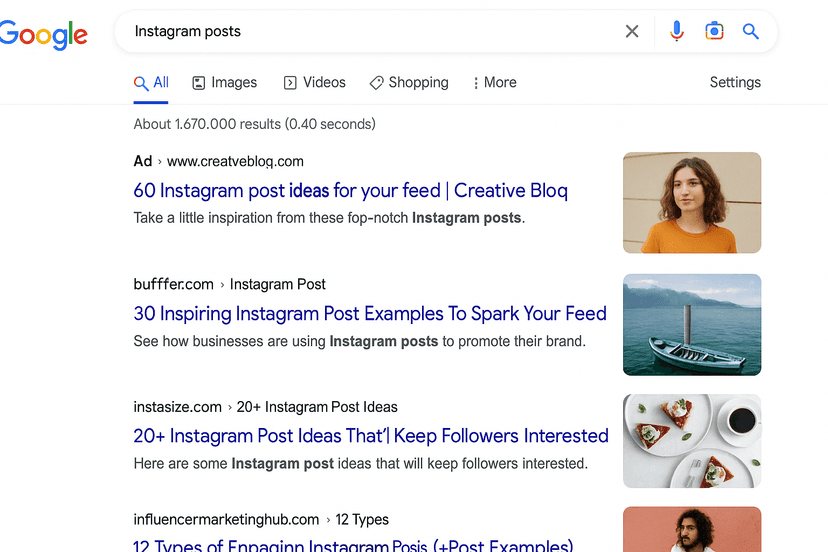The advent of artificial intelligence (AI) has radically transformed the field of search engine optimization (SEO), to a point where search marketing has become more of a data-driven science than a content-driven art. With the automation of data collection, processing, and reporting that AI offers today’s SEO professionals, the bridge between the organic and the artificial has begun to look and feel – well – completely organic.
Over the years that we’ve been working in digital marketing, we’ve seen AI’s profound effect on SEO first-hand – so we speak with some authority when we say that a revolution in the future of search is upon us.
In this post, we’ll explore some of the many ways AI is shaping the way that organic search is performed today, designed to help search practitioners to understand – and to capitalize upon – some of the most powerful tools now available to them.
What is AI in SEO?
AI for SEO refers to the use of artificial intelligence tools to boost a website’s search engine results page ranking. It involves the art and science of using AI to automate data analysis, pinpoint user behavior trends, and discern content optimization suggestions. While traditional SEO techniques remain essential, AI enhances the process by offering automation and data mining to increase productivity and unlock new value in the organic channel.
Leveraging AI for SEO Success
AI isn’t just streamlining the technical aspects of SEO. It’s also playing an ever-greater role in enhancing user experiences. By analyzing user behavior data, AI can pick out places in which existing ranking factors are ripe for improvement, and suggest personalized content that improves the overall experience and helps earn organic links.It’s no surprise, then, that AI is expanding into the realm of content creation and optimization. AI already makes it easy to create blog ideas and outlines — tools can even offer content suggestions based on your SEO suggestions, and AI programs are even starting to automatically generate content.
The integration of AI, especially generative AI, is redefining the role SEO plays in a marketing organization. AI tools can be used to streamline optimization processes, freeing up more time for in-depth data analysis and strategic thinking. They can also be employed to automate repetitive tasks, ensuring data integrity and compliance.
AI delivers the most value in SEO by reducing manual work and eliminating repetitive tasks, allowing teams to focus on more creative and strategic initiatives. It is particularly effective in areas such as keyword research, topic analysis, content creation, and automation for efficiency.
Moreover, the foundation of search engines like Google relies on sophisticated algorithms that crawl, index, and rank content based on relevance and authority. Algorithms driven by AI have the potential to significantly enhance these procedures, producing more precise, tailored, and effective search results.
To effectively use AI for SEO, it is essential to manage expectations, set clear goals, and invest in ongoing education. AI should be seen as a tool to enhance, not replace, human expertise. It is important to use AI to learn about your audience, optimize content, and conduct A/B testing to understand what works best.
The Expansive Role of AI in Modern SEO
Beyond traditional SEO tools, AI’s role in SEO is expansive. From semantic search, understanding user intent, to predicting future search trends, AI is at the forefront. AI tools are increasingly being used to predict future search trends, allowing businesses to stay ahead of the curve and tailor their SEO strategies to upcoming changes in user search behavior. This proactive approach to SEO strategy development is made possible through the advanced capabilities of AI-driven tools. Here are a couple of AI tools available to leverage AI’s growing influence in SEO, offering AI-driven recommendations and insights:
Clearscope: Tailoring Content to Audience Needs
Clearscope is a premier content optimization platform. By analyzing top-performing content across the web, it enables businesses to create highly relevant and engaging content. With AI-powered tools, businesses can optimize their online presence with unprecedented precision, ensuring they not only rank at the top but also offer content that truly resonates with their audience.

SurferSEO: On-Page SEO Optimization
SurferSEO paves the way for businesses to optimize content, backlinks and beyond through a deep dive into on-page data, and its visual representation of data makes it easy for businesses to take advantage of the AI-driven insights it uncovers in their on-page SEO optimization efforts.

Managing Expectations: The Human Touch in AI-Driven SEO
While AI is a powerful tool for enhancing SEO, it’s important not to lose sight of the human touch in AI-driven SEO. Though visualization makes it simple to understand insights, it’s equally important to manage expectations and understand the limitations of every AI tool (OpenAI themselves confirm that ChatGPT for example has limitations). While SEOs, content marketers and businesses at large stand to gain a great deal from weaving AI-driven insights into their strategies, the true test of relevance is whether the final output resonates with people, not just search engine crawlers.

The Future of AI-Driven SEO
The integration of AI in SEO is transformative, as search engines harness AI’s prowess to refine and elevate their results, while SEO teams leverage AI to amplify their strategies. As intelligent content and advanced search algorithms increasingly align, the digital landscape is expected to prioritize both user experience and sophisticated SEO strategy.
The role of AI in SEO is rapidly evolving, and its potential to revolutionize the future of search is significant. By understanding and effectively leveraging AI tools and strategies, marketing professionals can stay ahead of the curve and achieve success in the ever-changing digital marketing landscape.





